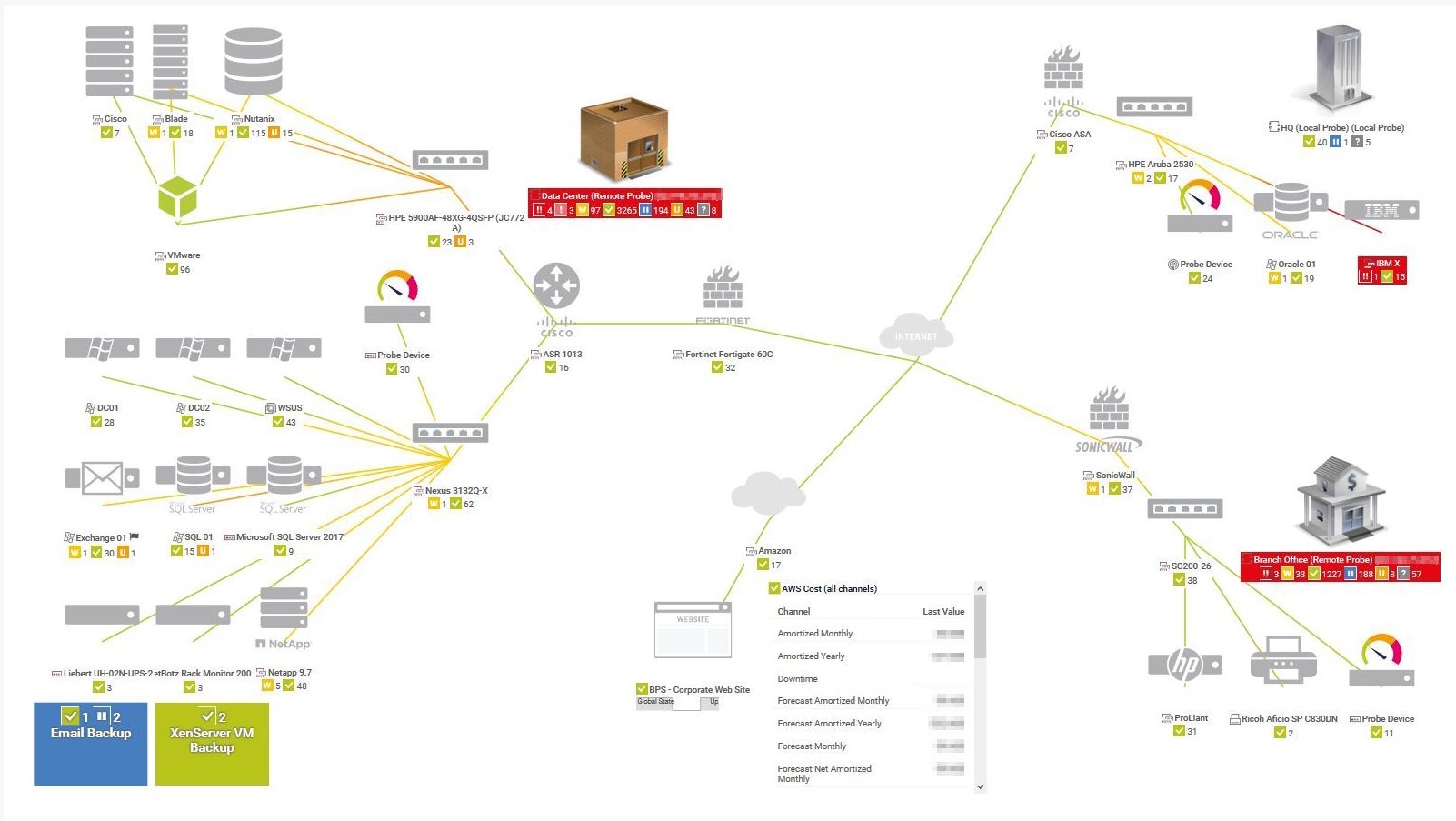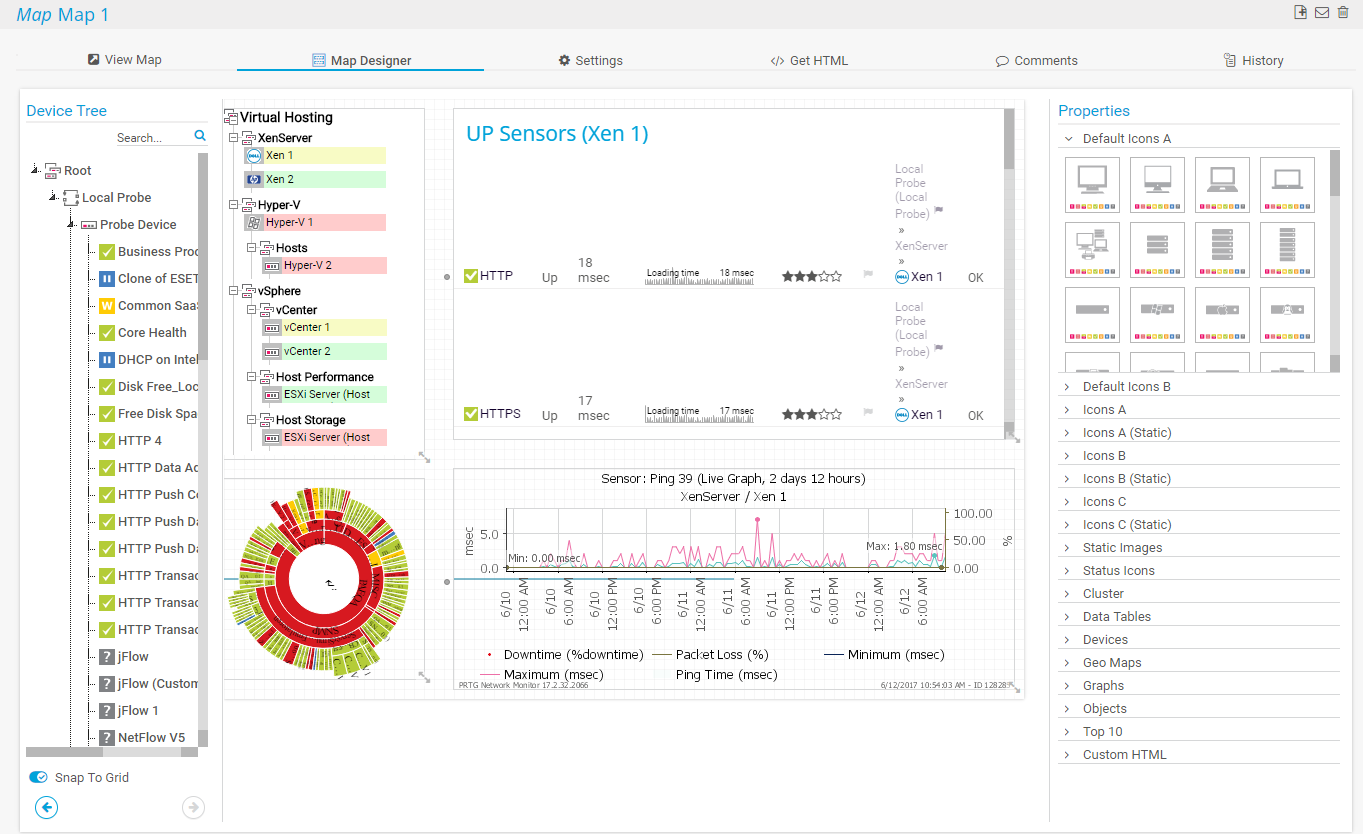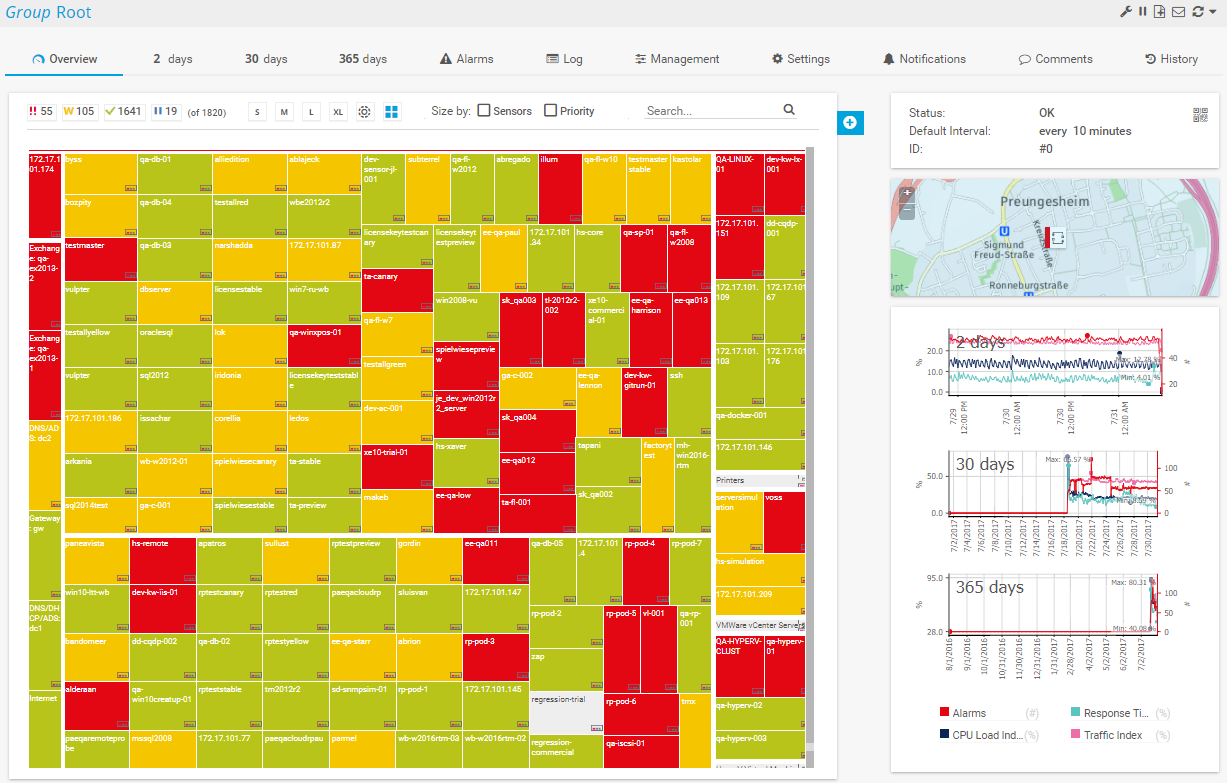Custom alerts and data visualization let you quickly identify and prevent network issues like bandwidth bottlenecks or security vulnerabilities.
Compare Paessler PRTG to other tools.
Unlike PRTG, pure network scanners and mapping tools require significant time-consuming, manual work to provide valuable maps of complex networks.
Although they detect the network with all its components and deliver results in the form of a list, this information must be manually applied to create dynamic network charts and maps.
Moreover, you can build only static network diagrams that function as a pure network overview. Network topology mappers like PRTG, on the other hand, let you display a live diagram of your physical network elements.
Other network monitoring tools with the mapping option fall short of the optimized troubleshooting and network planning functionality of PRTG. Many do deliver information on the availability and condition of detected components, as well as network traffic and performance.
They also promise further assistance with an auto-mapping functionality that displays network devices identified through a network scan (such as switches, routers, firewalls, servers, or applications) in automatically generated network maps. However, the outcome of such auto-generated maps is often not very satisfactory at all.
The automatically generated maps of auto-mapping solutions often fall short in terms of readability and usability – compared to the structured, easy-to-use network maps in PRTG. They scan the network and integrate the identified devices directly in network diagrams and maps.
However, many devices and connections are displayed one-dimensionally on oversized maps.
Integrated network mapping solutions like PRTG are clearly superior to the combination of network scanners and mapping tools when it comes to usability and delivering data on the actual status of devices.

Example of a network topology map

Easily create a map that meets your needs.

PRTG device tree in tree map view
Custom alerts and data visualization let you quickly identify and prevent network issues like bandwidth bottlenecks or security vulnerabilities.
Partnering with innovative IT vendors, Paessler unleashes synergies to create
new and additional benefits for joined customers.
By integrating PRTG with Martello iQ, you can add a fast analytics layer to improve uptime, visualize your IT environment, and integrate all of your IT systems into a single pane of glass.
Paessler and Plixer provide a complete solution adding flow and metadata analysis to a powerful network monitoring tool.
Siemon and Paessler bring together intelligent building technology and advanced monitoring and make your vision of intelligent buildings and data centers become reality.
Real-time notifications mean faster troubleshooting so that you can act before more serious issues occur.
Network Monitoring Software – Version 25.3.110.1313 (August 27, 2025)
Download for Windows and cloud-based version PRTG Hosted Monitor available
English, German, Spanish, French, Portuguese, Dutch, Russian, Japanese, and Simplified Chinese
Network devices, bandwidth, servers, applications, virtual environments, remote systems, IoT, and more
Choose the PRTG Network Monitor subscription that's best for you
Network mapping is the process of visually representing a network's physical and logical connections. It allows network administrators to see how devices and systems interact and helps in organizing and analyzing network data and optimizing the network infrastructure.
Network mapping enhances network management by providing a visual representation of the network's structure, which helps in identifying and resolving network issues quickly. It improves monitoring and troubleshooting by allowing administrators to identify problems, understand data flow and thus optimize the overall network performance.
Using both network mapping and network monitoring helps admins visualize network dependencies and track important performance metrics, leading to more efficient troubleshooting and minimized downtime. This synergy ensures a comprehensive view of the network and enables a proactive management and quicker resolution of issues.
In PRTG, “sensors” are the basic monitoring elements. One sensor usually monitors one measured value in your network, for example the traffic of a switch port, the CPU load of a server, or the free space on a disk drive. On average, you need about 5-10 sensors per device or one sensor per switch port.
Paessler conducted trials in over 600 IT departments worldwide to tune its network monitoring software closer to the needs of sysadmins. The result of the survey: over 95% of the participants would recommend PRTG – or already have.
Paessler PRTG is used by companies of all sizes. Sysadmins love PRTG because it makes their job a whole lot easier.
Bandwidth, servers, virtual environments, websites, VoIP services – PRTG keeps an eye on your entire network.
Everyone has different monitoring needs. That’s why we let you try PRTG for free.